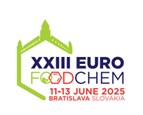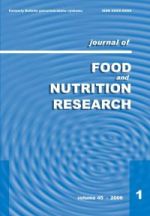Vedecký časopis - archív
Journal of Food and Nutrition Research
Súhrny čísla 4 / 2013
Banjari, I. – Kenjerić, D. – Mandić, M. L.
Iron bioavailability in daily meals of pregnant women
Journal of Food and Nutrition Research, 52, 2013, č. 4, s. 203-209
Ines Banjari, Department of Food and Nutrition Research, Faculty of Food Technology Osijek, University of Osijek, F. Kuhača 18, Osijek, HR-31000, Croatia. Tel.: +385 31 224 300, fax: +385 31 207 115, e-mail: ines.banjari@ptfos.hr
Súhrn: Pregnancy presents a critical period for both woman and child, and proper iron status is especially important to prevent adverse pregnancy outcomes. For iron the problem almost exclusively lies in nutritional deficiency, since meat presents the best food source of iron, and energy and iron intake are in direct correlation. That is even more emphasized in times of increased needs for iron, like in pregnancy. The aim was to determine whether and in what scale does meals composition influence iron bioavailability, with an insight in changes throughout pregnancy. Randomized prospective observational study encompassed 222 singleton pregnancies from Eastern Croatia. Nutrition quality analysis by multiple 24-hour dietary recall, during 2010–2011, showed low intakes of energy and proteins (p < 0.001) through trimesters. Plant foods were the main source of iron contributing more than 80% to total iron. Other inhibiting factors (tannic acid p = 0.024, calcium p < 0.001) showed significant influence on iron bioavailability. Still, physiologic adaptation during pregnancy resulted in slight but significant increase in absorbed iron (from 1.20?mg in the 1st to 1.33?mg in the 3rd trimester, p = 0.035). The results imply the need for the educational intervention programmes, aiming at food choices during pregnancy.
Kľúčové slová: pregnancy; nutrition quality; iron bioavailability; absorption; inhibition
Na stiahnutie:
jfnr20134p_1.pdf (PDF, 95.71 Kb, 2226x)










